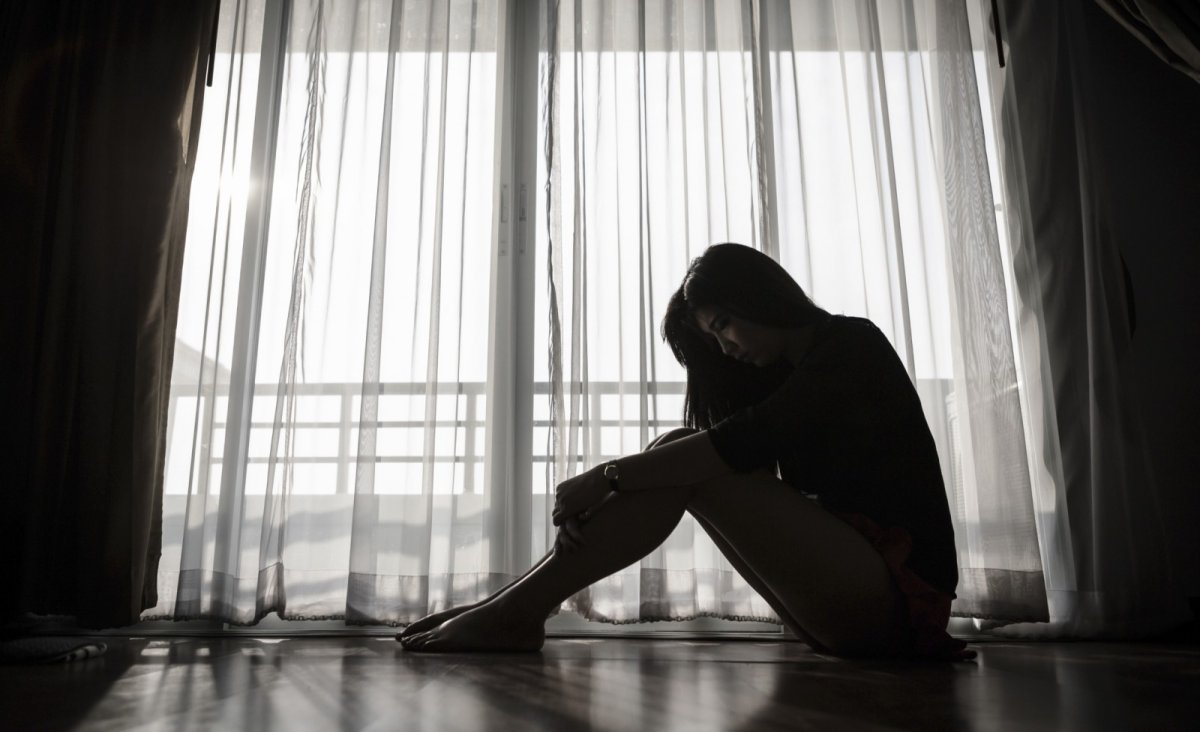Warning: This story deals with a sensitive issue that some readers may find upsetting. Please read at your own discretion.

The demand for psychological services grew over 50 per cent in 2022, the Ontario Psychological Association said Monday, adding that Ontarians are increasingly turning to privately delivered care for help.
But for Jeannie Gheller, a parent from London, Ont., “it’s been impossible” to find her now 18-year-old daughter the proper mental health support she needs.
According to the mother, the family has been searching for more than a year for intensive inpatient mental health treatment for their daughter, whose erratic behaviour and suicide attempts began when she was just 12 years old.
Having since escalated since 2021 and more recently been diagnosed with severe obsessive-compulsive disorder, Gheller said that despite excessively looking, the process of finding her daughter the proper treatment has not been easy.
“We keep getting turned away because of her age,” she said.
“We’ve been unable to secure any kind of treatment for her because we were told that she was either too high-needs for any of the facilities that we could get into, or that she would be aging out of any intensive services that may be provided for her,” Gheller said.

Due to her daughter’s increasing self-harm behaviours, she has been in and out of hospital, either by checking herself out of treatment programs or being discharged because of violence.
In August 2022, Gheller says a referral was made to youth in-patient services in Hamilton and Niagara, but, just like other attempts in accessing available support, the family continues to wait.
“She’s at the London Health Science Centre, kind of just waiting there because her behaviours are too dangerous to release her,” Gheller said.
“They’ve really done everything that they can and exhausted all their resources to try to get her help. So much so that they know that they can’t discharge her because she will die either from her thoughts or from her sadness,” she said. “They’re holding her until we can hopefully come up with a plan or get her into some kind of treatment facility now that she’s 18.”
However, the challenge is, according to Gheller, her daughter has officially aged out of eligibility for youth programs and is now on an adult waitlist.
Her family has been told to expect yet another wait of at least 12 to 18 months.
They’re not the only ones in need of immediate help.
Dawn, another mother from London who’s asked that her last name not be published, said that for her 12-year-old daughter’s entire life, “she has always needed some support” in terms of mental health. However, in July of last year, she said that something changed within her daughter, saying “it was like a different child woke up.”
“She became fixated on harming herself, fixated on wanting to harm her family members and kill her family members,” Dawn said. “We’re in and out of the hospital because that’s about the only place that is able to hold her, to keep her safe and to keep the family safe.”
Her daughter, like Gheller’s, is also staying at LHSC but in an isolated room with two security guards standing outside.
“It’s not treatment, it’s isolation,” Dawn said. “They’re doing the best job they can do there for the resources they have.”
Due to her daughter exhibiting severe aggression not only towards herself and her family, but also in assaulting police, CAS and hospital staff, Dawn said she was forced to give up custody of her child.
“That was something that was pushed,” she said. “That you had to relinquish custody in order to keep your family safe when it became apparent that the police were involved, the courts were involved (and) the hospital.
“This has not gotten her any help, it’s just created another barrier and another added stress,” Dawn continued. “This isn’t a child protection issue. This is a lack of mental health and behavioral supports that are not just in London, it’s across Ontario.”
Dawn said the family has tried to access support within 90 different services across the province, but is told that their daughter’s needs exceed the support they are able to provide.
“All the community services that were available in London said no, she’s too complex, digression too high, doesn’t meet our mandate,” Dawn said.
“You think there would be support when you’re in such an immediate crisis and the crisis just never stops, (but) we have been met with every roadblock possible.”
Kellysue McNeil, another mother from London, said the challenge of finding accessible mental health support for children stretches far beyond provincial walls, having travelled as far as Taiwan in the journey to find treatment for her 14-year-old foster daughter.
Reflecting over this past year, McNeil said her daughter’s condition has gotten “progressively worse.”
“She actually assaulted me last January 31,” she said. “She had broken my jaw, ripped my arm out, and according to the video tape the police have, it looks like I had been attacked by a tiger.”
Since then, McNeil said her daughter has accumulated 15 criminal charges and has “been part of the grooming group in London for the prostitution ring.”
“She was getting drugs out the back door of the group home and then that drug dealer took her to the grooming house. She was still 13,” McNeil said. “She was assaulted by a 27-year-old and four other men.”
McNeil said her daughter has also assaulted multiple social services workers, “one of whom is still in therapy from it.”
She said suicide attempts would often occur on a daily basis, “sometimes six times a day.”
“Sometimes a police officer would wait 18 hours in a hospital room for her to simply be released,” McNeil said. “It was a revolving door.
“She has stolen trucks, she’s selling her body (and) she’s been living on the streets even though we’re begging her to come home,” she said.

Having fully adopted her at three years old, McNeil said her daughter was in private Christian schools, speaks three languages and was a competitive athlete in horseback riding, swimming, soccer, and track and field.
However, her daughter suffered from fetal alcohol syndrome and was born with a cocaine addiction.
“She presents like a perfect, well put together child and yet she has no cause and effect,” McNeil said. “She cannot think five minutes ahead and she does what she wants no matter who it may affect.”
McNeil has a Facebook page called Mothers of Disabled Children where she provides free consultation for parents of children with special needs, having raised 27 of them herself. But with the ongoing situation with her 14-year-old daughter, she said that it is “the worst case” she’e ever seen.
Worried about their family’s safety, McNeil said padlocks have been installed on all bedroom doors in their home.
“We have had to lock our quadriplegic mute son with a bolt into his bedroom because she’s threatened to murder him,” she said. “The police are now agreeing with us that the next step is she’s going to hurt someone or she’s going to seriously kill somebody and that is the only time the courts or the politicians will actually do something.”
In the ongoing search for help, the McNeil family has travelled across the world in seeing various specialists and psychiatrists but, according to the mother, a consensus diagnosis has yet to be reached.
“The diagnosis is anything from fetal alcohol to cocaine brain, to autism, to ADHD, bipolar, borderline schizophrenia, OCD, Tourette’s — you name it, we’ve gotten it,” McNeil said. “It isn’t just that the wait-lists are so long, we are being told that she is too severe to help.”
In total, the family has been rejected from 70 different treatment facilities due to a lack of available services, spending thousands of dollars in trying to access private support in order to help treat their daughter’s severe condition.
But no matter where they go, “everyone says their hands are tied.”
“They need to know that we cannot sleep (and) that we are terrified when we have our children at home because we don’t know if tonight is the night they kill themselves, they kill one of us, or they kill our other children,” McNeil said.
“We don’t know who else they’re going to hurt,” she continued. “We don’t know if it may be your child. We don’t know if it might be their teacher in the classroom, but we need to do something now.
“We need to come together as a unit, we need to stand up, and we need to fight so that people understand that this is happening in our own backyards.”
A Community Services Coordination Network intensive service review determined that “there is, indeed, a gap in services in that there were no community-funded options appropriate in our area that could provide service to (the child) at this time.”
After hearing these three stories from local families who are desperate to find lasting, effective support for their children, London-West MPP Peggy Sattler is calling on the Ontario government for better publicly funded support in children’s mental health care.

On Friday, Sattler wrote a letter to Michael Tibollo, associate minister of mental health and addictions, outlining a need for change.
“Minister, these families are exhausted by their endless interactions with family physicians, medical professionals, paramedics, hospital staff, police, agency workers, custody and court officials, and more, which come at an extraordinarily high cost to public resources but never result in help for their children,” she wrote. “They are drained by weeks of waiting for meetings to be coordinated, only to be abandoned by a system that tells them their children’s needs are too complex or behaviours too violent for the services available, with no other treatment options provided.
“Where are these families supposed to turn if the publicly funded mental health programs for children and youth are not able to meet their needs?” Sattler’s letter continued. “How can these families be expected to support their children at home without access to appropriate community services? I implore you to direct staff from your ministry to contact these parents and provide assistance, before their children are lost forever.”
Additionally, Sattler called on the minister to “personally meet with these parents to hear their concerns” and in understanding their “nightmarish reality” in trying to navigate the system. She also appealed for his “intervention to help ensure that our community has the intensive mental health services that these young people and their families deserve.”
Sattler told Global News that while some families she mentioned in her letters have received calls from Tibollo, some still have yet to hear from the government.
“I’m going to keep advocating on behalf of these families and advocating on behalf of all of the people in London who are going through the same kind of struggle with trying to access mental health supports,” Sattler said.
In a statement to Global News, the ministry of health said the government is working to better support the mental health and well-being of all Ontarians through the Roadmap to Wellness, a “plan to build a modern, world-class mental health and addictions system.”
In 2019-20, the ministry said that $525 million was invested into the plan in “new base funding” to support the following key areas:
- $130 million for child and youth mental health
- over $80 million for community mental health, including Ontario Structured Psychotherapy, non-police mobile crisis services, mobile mental health clinics, early psychosis intervention, and peer support
- over $93 million for addictions treatment
- $9.05 million for youth wellness hubs for youth aged 12 to 25 experiencing substance use issues
- $16.6 million for eating disorders services and supports
The government is also implementing the Addictions Recovery Fund — a “one-time investment of $90 million over three years to boost capacity in addictions services” — in response to the “pandemic’s impact on substance use.”
Additionally, on Wednesday, the government announced that it is putting $4.75 million towards expanding One Stop Talk, a virtual walk-in counselling program, for children and youth to access mental health services.
The province also said it’s adding eight new youth wellness hubs, bringing the total to 22 across the province.

However, going back to the study released Monday by the Ontario Psychological Association, requests for mental health support for children and youth services increased by 104 per cent between 2021 and 2022.
“Skyrocketing demand among younger age groups reflects a high level of unmet need within communities,” the study read.
The ministry said that as it continues “the work to implement the Roadmap, we are committed to working with health service providers, the Centre of Excellence within Ontario Health (OH) and the OH regional planners to allocate funding across Ontario and address regional needs.”
If you or someone you know is in crisis and needs help, resources are available. In case of an emergency, please call 911 for immediate help.
Crisis Services Canada’s toll-free helpline provides 24-7 support at 1-833-456-4566.
Kids Help Phone operates a toll-free helpline at 1-800-668-6868 with 24-7 support for young people as well as the Crisis Text Line, which can be reached by texting HOME to 686868.
The toll-free Hope for Wellness helpline provides 24-7 support for Indigenous Peoples at 1-855-242-3310. Online chat services are also available.
Trans Lifeline operates a toll-free peer support hotline for trans and questioning people at 1-877-330-6366.
For a directory of support services in your area, visit the Canadian Association for Suicide Prevention at suicideprevention.ca.








Comments